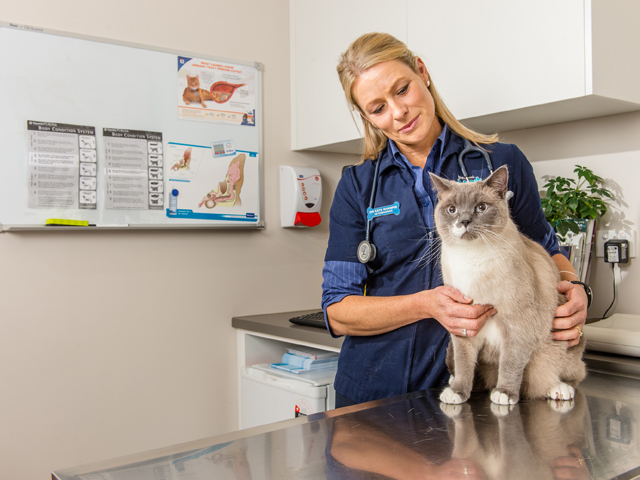Att: Pet Parents This World Obesity Day

PETstock urges pet parents to weigh in on the health of their pets this World Obesity Day, October 11
Just like humans, being overweight can seriously impact the health of our pets.
According to the experts, almost half of dogs and one third of cats in Australia are overweight or obese.
In recognition of World Obesity Day this October, PETstock is calling on Aussie pet parents to 'paws' and consider the health of their pets.
Here's some helpful diet tips from PETstock VET Dr Marjorie Au to keep your pets' weight in check:
Diet
Our pets' happiness relies on them being healthy and one of the easiest ways to achieve this is to ensure they're being fed a nutritionally balanced diet.
There are many different varieties of food available that cater to your pet's needs depending on their breed, age and health. Consider the different types when deciding what you should feed your pet. Special needs varieties can assist your pet with factors such as:
• Growth
• Health maintenance
• Weight loss
• Allergies
• Dental/oral care
• Activity levels
Weight check
A healthy weight between breeds and animal species can vary, however, there are three tried and tested ways to check the healthy weight of cats and dogs.
The ribs. If you can feel their ribs that's a good sign.
The hourglass: Can you see the curve of their waist between the ribs and the hips?
The tummy tuck: Whether it's a dog or a cat, your pet should never have a sagging tummy.
Top tips from PETstock VET Dr Marjorie Au
• Pets suffer boredom too. Like humans, they'll graze, so if there's any food left after mealtime, don't leave it there more than an hour. They'll soon realise to eat at the right times.
• For overweight animals, a diet plan may be required so it's essential pet owners seek advice from their local vet. There's a great range of dietary options to support a healthy weight for all types of animals. Visit your local PETstock store or VET for some helpful advice.
• Consistency is key. Remember, an animal's digestive system is a temperamental thing. For cats and dogs, try to keep 80% of the base meal a good quality dry food and the other 20% can be wet tin food or a mix of homemade treats, fresh veggies or meat.
• Each variety of food, whether it's dry or canned, will tell you exactly how much you should be feeding your pet. Following these recommendations will limit your fur baby becoming overweight and acquiring more serious health issues.
• Why not make mealtime exercise time? Try hiding dry food in a box or a ball they have to play with to get the food out.
• Just like us humans, pets require daily exercise to remain healthy and happy. Taking them on a walk everyday will not only keep your and their weight in check, but is also great to decrease stress and improve mood.
Pet obesity fast facts
• Did you know, dogs have six times less taste buds than humans? They eat for satisfaction, not for taste.
• Dog owners walk on average 300 minutes a week versus 160 minutes of those without dogs.
• The more weight your pet has to carry around the more stress there is on their joints and hearts. This is particularly important in elderly animals.
• Pets will often gain weight more easily after they have been neutered due to a change in hormone levels within their body.
• Female animals are at higher risk of pet obesity associated conditions.
• Pet obesity is an increased risk during surgery and general anaesthesia.
About World Obesity Day 2019
Established in 2015 by the World Obesity Federation, World Obesity Day is an annual campaign that aims to stimulate and support practical actions that will help people achieve and maintain a healthy weight and reverse the global obesity crisis.
For more information on World Obesity Day visit obesityday.worldobesity.org
For more information on how to look after the health of your pet visit https://www.petstock.com.au/pet-smarts
MORE





